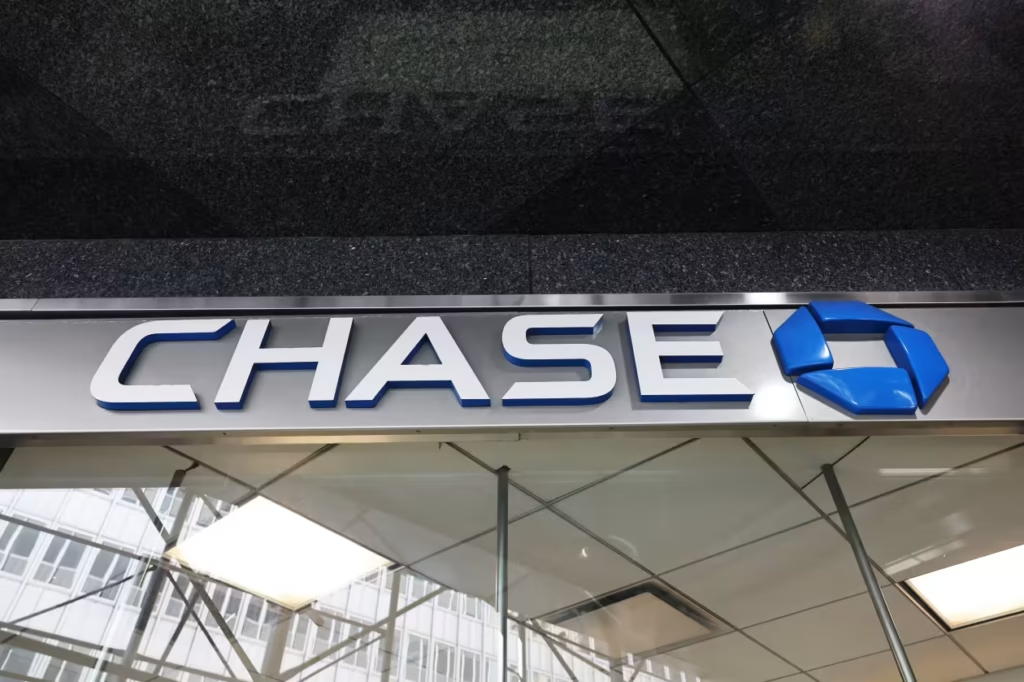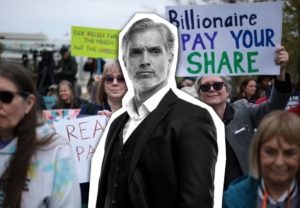Jamie Dimon, the CEO of JPMorgan Chase & Co., stated that the global economy is still experiencing “considerable turbulence” as the bank increased its provision for credit losses by $1.4 billion in order to preserve its “fortress” balance sheet.
As the bank released its first-quarter earnings, Dimon stated in prepared remarks, “The economy is facing considerable turbulence (including geopolitics), with the potential positives of tax reform and deregulation and the potential negatives of tariffs and ‘trade wars,’ ongoing sticky inflation, high fiscal deficits, and still rather high asset prices and volatility.”
“In this environment, we still think it is wise to have excess capital and plenty of liquidity.” JPMorgan Chase & Co.’s Jamie Dimon.
The financial behemoth adhered to its 2025 prediction of net interest income of almost $90 billion, excluding market activities. JPMorgan Chase increased its 2025 net-interest-income forecast, including markets, from $94 billion to $94.5 billion.
Following the bank’s announcement that its earnings increased to $14.64 billion, or $5.07 per share, in the quarter from $13.42 billion, or $4.44 per share, in the year-earlier quarter, JPMorgan Chase’s shares (JPM) increased 1.1%.
In terms of first-quarter profit, the biggest bank in the United States well above the FactSet consensus forecast of $4.63 per share.
Revenue for the first quarter exceeded the analyst’s forecast of $43.99 billion, rising to $45.31 billion from $41.93 billion in the same quarter last year.
The credit loss provision increased significantly from $1.88 billion in the same quarter last year to $3.3 billion. Additionally, it invested $973 million to increase its reserves.
“We continue to believe it is prudent to maintain excess capital and ample liquidity in this environment,” Dimon stated.
In contrast to its previous internal scenario of an inflation level as high as 5.5%, the bank increased the amount of money it set aside for its balance sheet to manage a possible increase in the U.S. unemployment rate to 5.8%. The U.S. government stated that the unemployment rate was 4.2% in March.
See also: Trump advises being “cool.” Jamie Dimon advises being concerned. The CEO of JPMorgan provides guidance on how to stabilize the markets.
Due mostly to its credit-card operations, net charge-offs—money the bank doesn’t expect to be paid back—rose from $376 million to $2.3 billion.
According to Dimon, American consumers are still in good health, albeit more wary these days. The bank observed that consumers have been spending less on airline tickets, but they are still spending to stockpile goods before tariffs take effect.
Commercial clients are adopting a more “wait-and-see attitude” across industries and concentrating on their supply chains, according to Jeremy Barnum, the bank’s financial officer.
When asked if the prospect of a tariff battle with China is making investors steer clear of the U.S. bond market, Dimon responded that the country “is still a haven.”
According to him, the bank may need to set aside further reserves if U.S. unemployment increases, but the credit quality of the bank is still excellent.
JPMorgan Chase stated that its market volume was a bright spot during the first three months of the year, when the market fluctuated around the DeepSeek threat to Nvidia Corp. (NVDA) and other U.S. artificial-intelligence players, amid other uncertainties, even though trading volume in bonds and equities picked up significantly after the quarter ended on March 31.
The bank’s overall markets revenue increased 21% to $9.7 billion during the quarter, setting a record for equity-trading revenue. According to Dimon, the outcomes were “exceptionally strong.”
“They reminded everyone that they are the U.S. flagship bank and that they can handle any situation.” From Northwestern Mutual, Matt Stucky
Northwestern Mutual Life’s chief portfolio manager of stocks, Matt Stucky, speculated that JPMorgan’s decision to maintain its net-interest income prediction may be the reason behind Friday’s increase in the company’s stock price. “They reminded everyone that they’re the flagship bank in the U.S. and they have the ability to navigate every environment,” Stucky stated.
While lower-income consumers have been identified as being more affected by inflation, Stucky stated that if prices rise sharply in tandem with Trump’s tariffs, the wealthier consumers may begin to reduce their spending on travel and other discretionary items.
According to Mac Sykes, a stockholder in JPMorgan and portfolio manager of the Gabelli Financial Services Opportunities ETF GABF, the bank announced “another quarter of solid execution across the segments and platforms.”
According to JPMorgan, it anticipates increasing its market share in a “more challenging environment.”
As of Thursday’s closing bell, JPMorgan Chase’s shares had down 5.3% in 2025. The Dow Jones Industrial Average DJIA is down 6.9% this year, while the S&P 500 SPX is down 10.4%.
Along with Morgan Stanley (MS) and Wells Fargo & Co. (WFC), JPMorgan Chase was one of the three major banks to release its earnings.
Next week, the quarterly results of Citigroup Inc. (C), Goldman Sachs Group Inc. (GS), and Bank of America Corp. (BAC) will be released.
Big bank shares saw mixed trading on Friday, with Bank of America down 0.3%, Wells Fargo down 1.1%, Goldman Sachs up 0.5%, Morgan Stanley up 1.3%, and Citigroup down a fraction.
BondCliQ data shows that funds moved into debt issued by all six megabanks in the corporate bond market.





